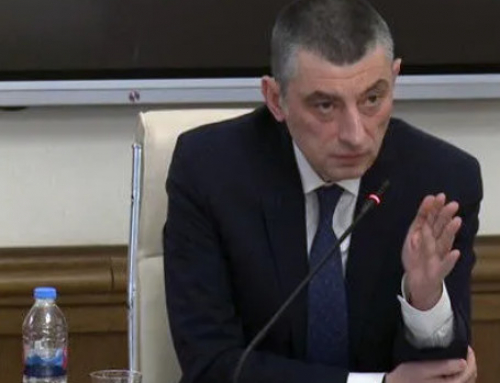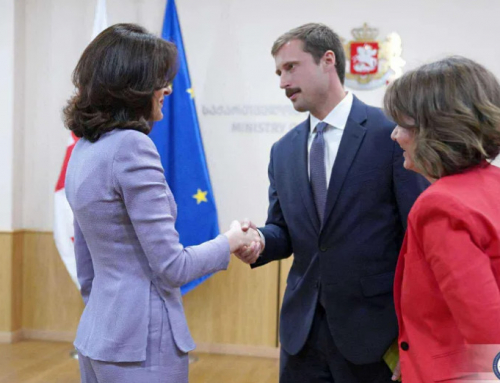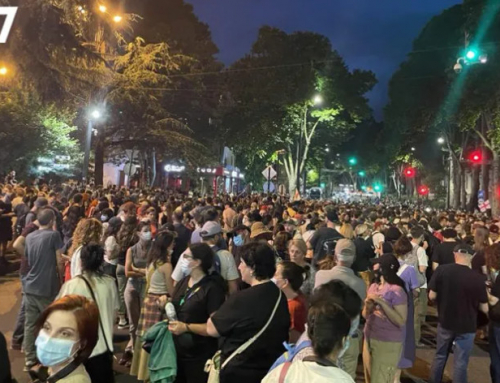TBILISI, DFWatch – Gradually the ground rules for next year’s election are being laid as parliament has begun a new round of discussion about election reform.
It comes earlier than expected, because recommendations from the Council of Europe (CoE) came sooner than the December 17 deadline, in the form of a working draft published on the Venice Commission’s webpage.
Several changes seem set to go through. One is that the Georgian Central Election Commission (CEC) will have to publish the electoral roll before the elections. There is also agreement about letting prisoners who are serving time for lesser crimes participate in the elections. Independent candidates will be allowed to compete. And companies which the government has a share in can finance political parties, as long as the share is less than 50 %.
These are the issues, on which the government is planning to follow the advice of the Venice Commission. But there are other important issues on which it refuses to go along with the recommendations.
One of the most significant issues in which the government is firmly against following the CoE’s advise is granting rights to a person not holding a Georgian citizenship. According to Georgian legislation, a person who is not a citizen of the country does not have the right to participate in elections. This issue came to the fore after the president revoked the citizenship of Georgian billionaire Bidzina Ivanishvili shortly after he had declared he would enter politics.
Ivanishvili is now appealing this decision in the courts, but considering the degree independence in Georgian courts, it is almost a given that the court won’t alter the president’s decision.
Also other of the CoE’s recommendations are getting attention. These regulations are: restricting the right to compete and participate in the elections on the basis of long-term residency in the country; designing electoral districts in a way which violates the equal suffrage right principle; lack of conditions which would give independent candidates the opportunity to compete; lack of mechanisms which would make it easier for women to compete; not enough regulation of party and campaign financing; and the lack of a system for resolving electoral complaints.
The CoE also notes that there are not sufficient regulations against using administrative resources for campaigning purposes by governmental candidates.
Chairman of parliament’s judiciary committee and National Movement member Pavle Kublashvili claims that the Venice Commission’s position regarding the difference between the numbers of so-called majoritarian districts has been taken into account. He says that the government thinks that each district should have the opportunity to choose its majoritarian representative.
The majoritarian system is based on the first past the post principle, in contrast to the principle of proportionality. Georgia has a mixed election system with some districts having the majoritarian system, and others the proportionality system.
During its visit to Georgia the Venice Commission delegation signaled that they find it unacceptable to let governors participate in the election campaign.
But Kublashvili counters that the governors are political officials and as such they have a right to participate in the political process.
About the most hotly disputed issue — to prohibit legal entities from financing political parties — Kublashvili says that the Venice Commission shares the governmental position in this regard.
This issue is regulated in different ways in the two bills sent of the Venice Commission. According to the Electoral Code bill, which was sent to the Venice Commission in August, 2011, the limit on party donations from individuals and legal entities is doubled, now set at 60 000 Georgian lari for individuals and 200 000 lari for legal entities.
According to changes to the Law on Political Parties, which was sent to the commission in November, legal entities are totally prohibited from financing parties. Legal entities means private companies or organizations, also called legal persons.
Kublashvli says that according to the Venice Commission’s position, there cannot be different limits for legal persons and individuals; but considering the fact that setting up a legal entity is very easy in Georgia, such a process may get out of control.
“Finally they get to the fact that they share the formulation of the Ministry of Justice,” Kublashvili says.
But it also should be noted that Georgian non-governmental organizations (NGOs) and a broad political spectrum are strictly against the prohibition on legal entities financing parties.
The issues on which the government is planning to follow CoE rec ommentations include several relatively unimportant issues.
Kublashvili says the government is taken into account the Venice Commission recommendation and the length of the required residency in Georgia for candidates for parliament will be reduced.
The length will be reduced from 10 to 5 years. The same change is already reflected in the bill when it comes to the president. The Venice Commission demanded the same for the candidates to parliament.
According to the changes, the deadline for withdrawing a candidacy will be 10 days before the election. The current law defined sets a two day term.
The Venice Commission further has recommended that a part of the election code bill should be deleted which deals with donations from legal entities in which the state has a less than 50% share. The Venice Commission thinks that there shouldn’t be such a regulation in the code, and that each legal person in which there is the state share should be prohibited to make the donations.
Prisoners sentenced for the lesser crime are given the right to participate in the elections.
It has also been decided that a 5-person initiative group will have the right to present an independent candidate. Such a right doesn’t exist today.
Advertisements during the election campaign must cost the same for all political parties. This regulation will be written into the Election Code.
Another part of the ground rules for next year’s election is that during a period spanning from 50 days before election day and until the final results of the elections have been confirmed the by CEC, broadcasting license holders and the Public Broadcaster are obliged to stick to the following: the payable time allocated by TV or radio companies in one day shouldn’t exceed the 15% of its total daily broadcast and none of the political subjects should be given more than 1/3 of this time.
According to the Venice Commission recommendations, there should be added an appropriate article to the election code so that the rates paid for TV and radio time for all subjects must be identical, and this should apply equally to what it calls qualified and unqualified subjects.





Leave A Comment
You must be logged in to post a comment.